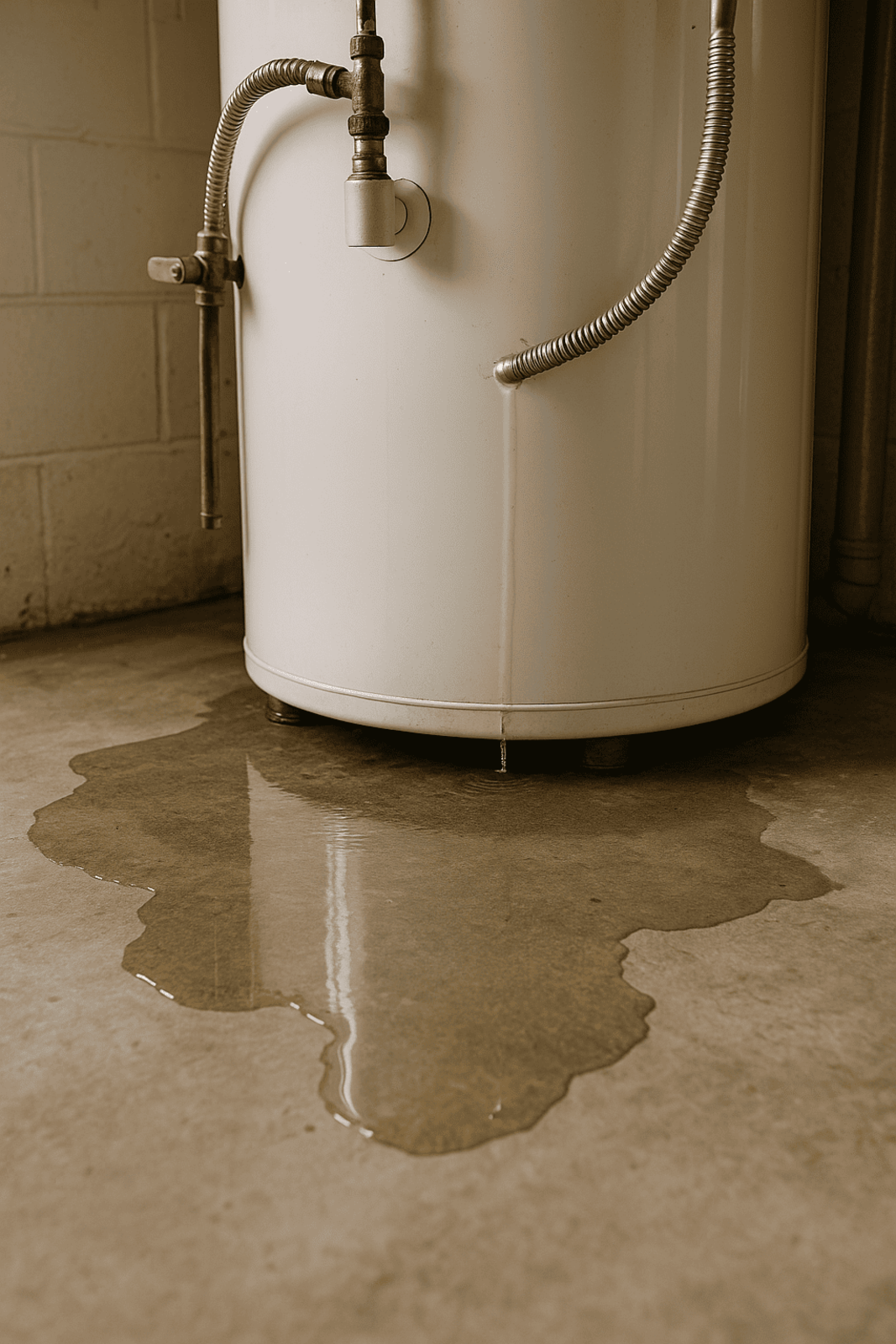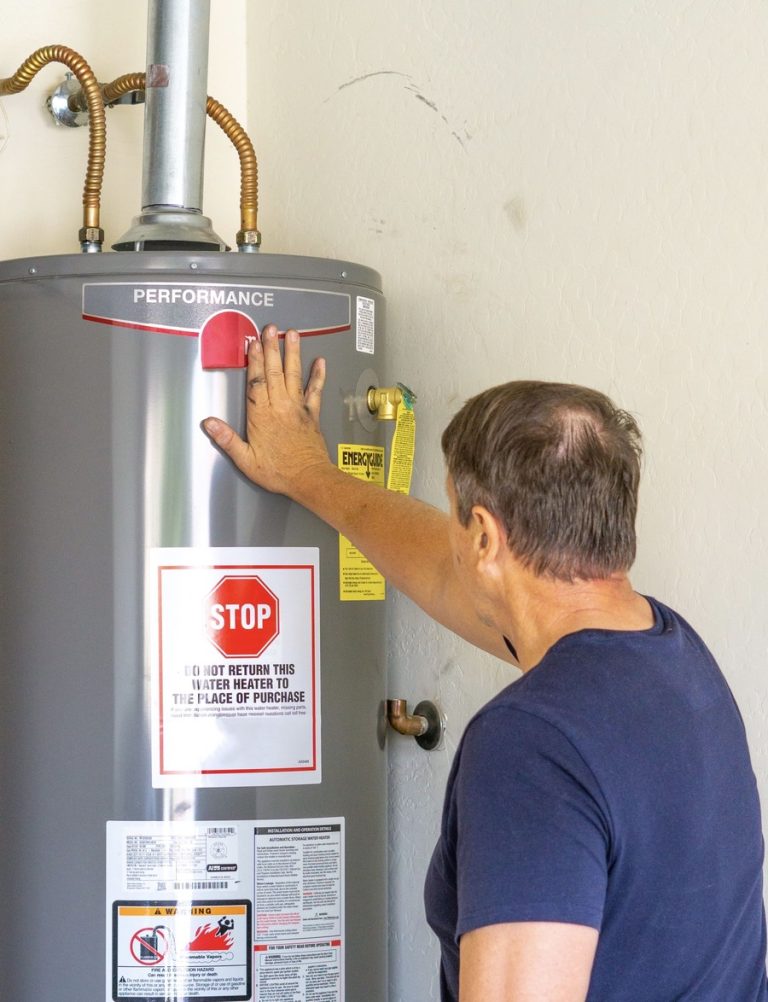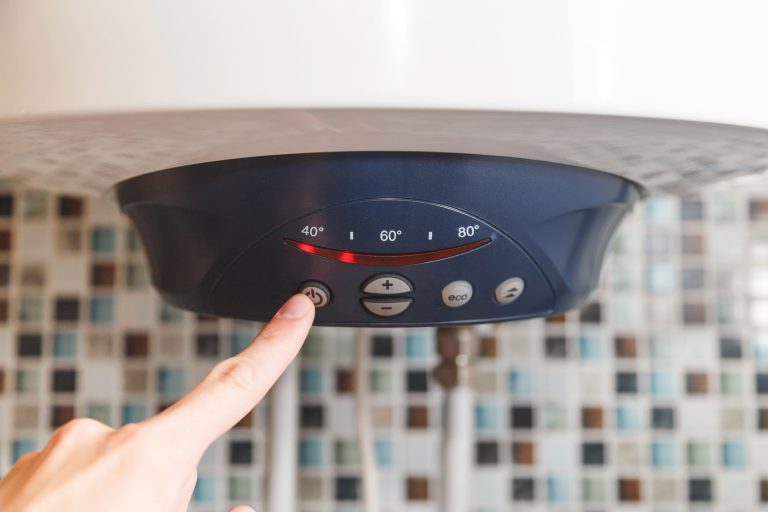11 Ways To Prevent Water Heater Leaking
Water Heater Leaking A leaking water heater can quickly turn into a costly problem if left unaddressed. Whether you’ve noticed…
Water Heater Leaking
A leaking water heater can quickly turn into a costly problem if left unaddressed. Whether you’ve noticed water pooling near your water heater or dripping around your tank, understanding the cause is vital. A water heater leaking can lead to water damage, increased energy bills, and safety hazards. This guide will explore causes, solutions, and ways to prevent leaks near the water heater. No matter your setup, whether it’s an electric hot water system, a tankless unit, or an RV water heater, we’ll cover everything you need to know to keep your unit running smoothly.
Common Causes of Water Heater Leaks
When your water heater springs a leak, it’s critical to assess the source of the leak and act quickly to prevent water damage. Here are some of the most common culprits of leaks in water supply lines, including condensation build-up and loose connections.
1. Corrosion in the Tank
Corrosion often forms in old water heaters due to rusting of internal components. Over time, anode rods deteriorate and can no longer protect the tank. If left unchecked, this wear and tear can lead to holes forming at the bottom of the tank, causing leaks that may require you to turn off the cold water supply. Replacing the anode rod regularly is one way to extend the life of your water heater.
2. Loose or Damaged Fittings and Connections
Loose pipe connections in the water supply lines can result from the tank’s constant expansion and contraction due to changing water temperatures. Check your tank’s fittings and connections, particularly around the cold water inlet and hot water outlet, for any signs of moisture or water running down the sides due to condensation. Tightening these plumb connections can often fix the issue.
3. Pressure Relief Valve Issues
The pressure relief valve is a safety device that prevents the tank from building up excessive water pressure. However, when the shut-off valve is faulty, you may see water leaking near the water heater. This valve is designed to release pressure, but if it leaks consistently, it might need to be replaced. A quick test or professional inspection can confirm the functionality of your water tank.
4. Sediment Buildup
Over time, minerals in water settle at the base of your water heater. This sediment buildup can damage the tank by causing overheating and leading to cracks. A simple solution is to flush your water heater periodically, which ensures that sediment doesn’t accumulate.
5. Wear on the Drain Valve
When the drain valve on the cold water supply side doesn’t seal properly or remains partially open, water can leak, leading to condensation around the fittings. If tightening doesn’t stop the water leaking, the valve itself may need to be replaced, or you may need to inspect the main shutoff valve.
How to Identify a Hot Water Heater Leak
Spotting a leaking water heater early can save you from costly water heater repair bills, especially if you turn the water off promptly. Here’s how to check your system:
1. Look Around Your Water Heater
Start by inspecting the area near your water heater. Pooling water on the floor or damp walls can be a clear sign of a leak. Be sure to check both the top and bottom of the unit.
2. Examine the Top of the Water Heater
If you suspect your water heater is leaking from the top, inspect the cold water pipe where cold water enters and the hot water outlet pipe. Tightening these connections may resolve the issue.
3. Check the Bottom of the Tank
If the water tank is leaking from the bottom, the issue could be sediment buildup, a cracked tank, or a loose drain valve. Draining the tank to flush sediment is a key maintenance step in preventing these issues.
4. Use a Garden Hose to the Drain
Attach a garden hose to the drain valve at the bottom of your tank to flush water and sediment safely. This practice can help prevent leaks and prolong the life of your system.
5. Monitor the Pressure Relief Valve
The pressure relief valve prevents pressure buildup, but if you see water leaking here, it’s time to fix or replace the valve.
6. Open a Hot Water Faucet
Opening a hot water faucet during inspection can help reduce tank pressure and make troubleshooting safer and easier.
Top 5 Reasons Why Your Water Heater is Leaking
Understanding why your hot water heater is leaking can help you take action.
Sediment Damage can lead to issues with the hot water taps if not addressed promptly.
Sediment creates a barrier at the bottom of the tank, leading to overheating and cracks.
High Water Pressure
Excessive water pressure or a faulty valve can cause leaks. Inspect your water tank to ensure pressure levels are within recommended limits.
An Old Water Heater can lead to increased condensation and leaks, making regular maintenance crucial.
An old electric water heater tank loses efficiency and is more prone to wear and tear. If maintenance isn’t enough, you may need to replace your electric water heater.
Corroded Anode Rod
A worn-out anode rod can no longer protect the tank, leading to rust and water leaks.
Damaged Drain Valve
Inspect the valve and drain area, as even minor damage can lead to significant water loss.
Is a Leaking Water Heater Dangerous?
Yes, a leaking water heater poses risks that range from structural damage to health hazards, especially if it affects the main shutoff valve.
1. Potential for Damage
Water on the floor can damage wood, drywall, or carpets. Prolonged leaks can result in structural problems and mold growth around your water heater.
2. Gas Safety Risks
If you have a gas-powered system, a leak can lead to further complications including gas leaks. Shut off the gas valve immediately if you suspect any danger.
3. Risk from Excess Pressure
A valve on the cold water supply side or an improperly functioning pressure relief valve can result in a dangerous buildup of pressure that may cause the tank to burst.
How to Stop a Water Heater Leak
Once you’ve noticed water dripping or pooling, these steps can help stop the damage:
Shut the Water Supply
Locate the cold water supply valve near the heater and close it.
Cut Off Power
Turn off the circuit breaker for electric systems or turn off the gas valve for gas systems.
Open the Drain Valve
Attach a garden hose to the shut-off valve to safely remove water from the tank.
Call a Professional if you notice any signs of moisture, especially around the electric panel or shut-off valve near the tank.
If the issue persists, it’s best to call a plumber to assess the damage and make repairs.
Water Heater Leaking from the Top or Bottom – Causes and Fixes
Whether water is leaking from the top or bottom of your tank, understanding why is key:
Top Leaks
Typically caused by loose pipe fittings or problems where cold water enters the water tank. Ensure all connections are tight, especially around the shut-off valve near the water heater.
Bottom Leaks can occur if the water in the tank is not properly maintained or if there are loose connections at the base.
Often due to sediment buildup or a failing drain valve. Flush the tank to remove buildup or replace defective parts.
Regular Maintenance to Prevent Leaks
Maintenance goes a long way to prevent water leaks and preserve the life of your water heater, ensuring that the water in the tank remains at optimal levels.
- Flush sediment annually.
- Check your cold water supply, pressure relief valve, and fittings for wear.
- Regularly inspect and replace the anode rod.
If your existing unit persists with problems, it may be time to replace your water heater with a new water heater that’s energy-efficient and reliable.
Conclusion
A leaking water heater isn’t just annoying; it can be costly and dangerous. By observing signs like water pooling near your unit or pressure relief issues, you can act before minor leaks escalate. From regular maintenance to quickly addressing problems, these steps will help you avoid major water damage. And don’t hesitate to call a plumber or professional expert when necessary for water heater repair or replacement. Preventing leaks ensures not only a reliable hot water supply but also peace of mind.



